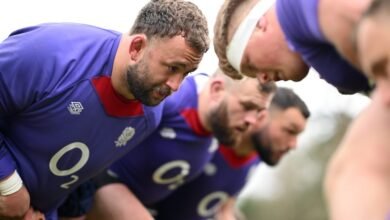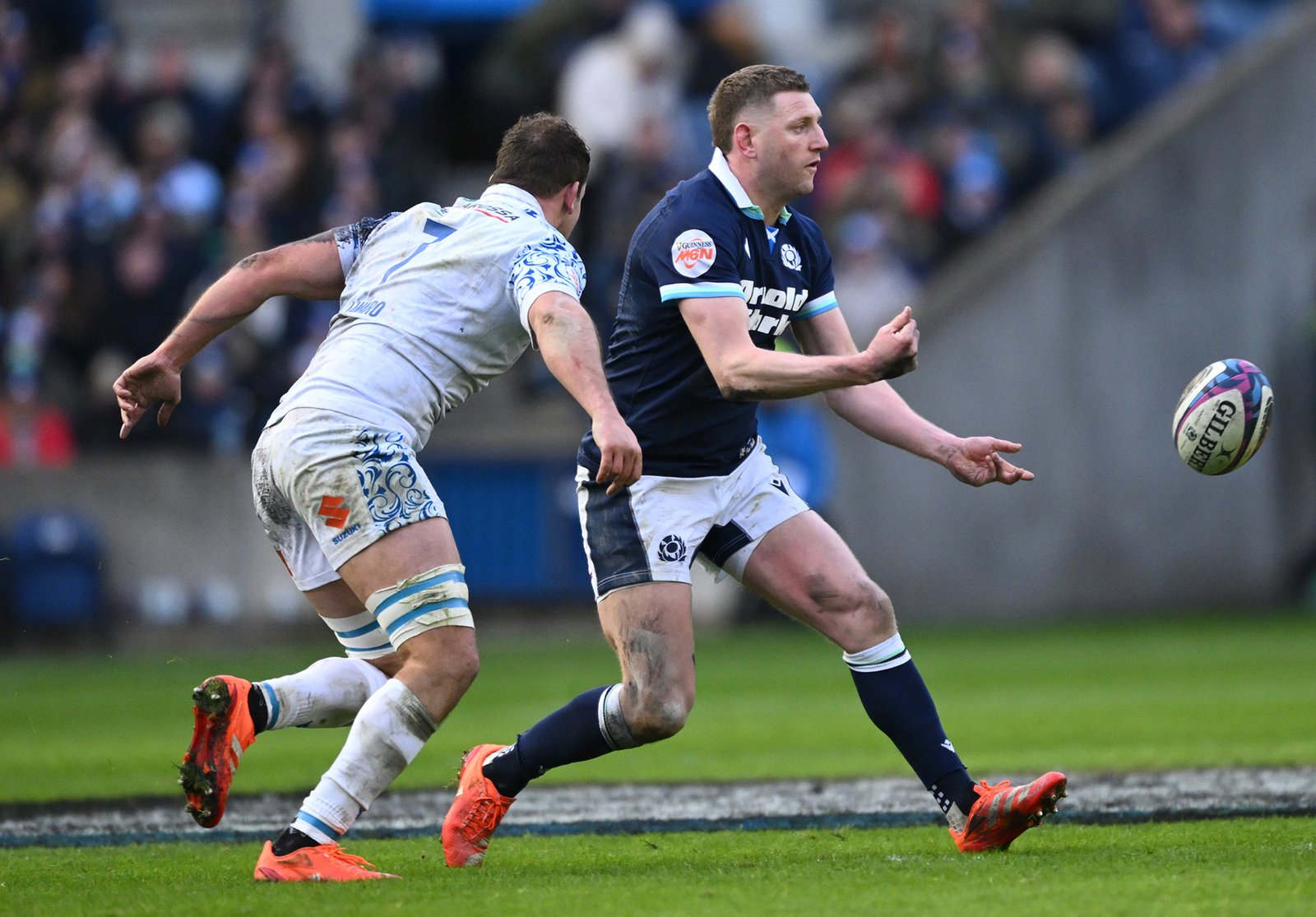‘Matches between Les Bleus and the All Blacks are rarely for the faint-hearted.’

It’s going to be a hot summer down under for Europe’s top rugby players. The Lions will be Australia for their three-Test series, while on the other side of the Tasman Sea France will play a trio of Test against New Zealand.
Matches between the Bleus and the All Blacks are rarely for the faint-hearted, but the July series could be particularly spicy.
New Zealand aren’t happy that the FFR have indicated they will send a second-string squad as part of their “preparation cycle for the 2027 World Cup with an approach focused on managing the most in-demand players”.
The NZRU expressed its “surprise” when it heard the news at the end of last year. Former All Black great Justin Marshall was more trenchant in his criticism of the decision. “Send your number one team and come and try and beat us in our own backyard,” he said. “We don’t send our B team to play you at the end of the year because our players are tired. We send over our team to knock you over in your own backyard. Now, try and actually see it from our perspective that we want to have that environment.”
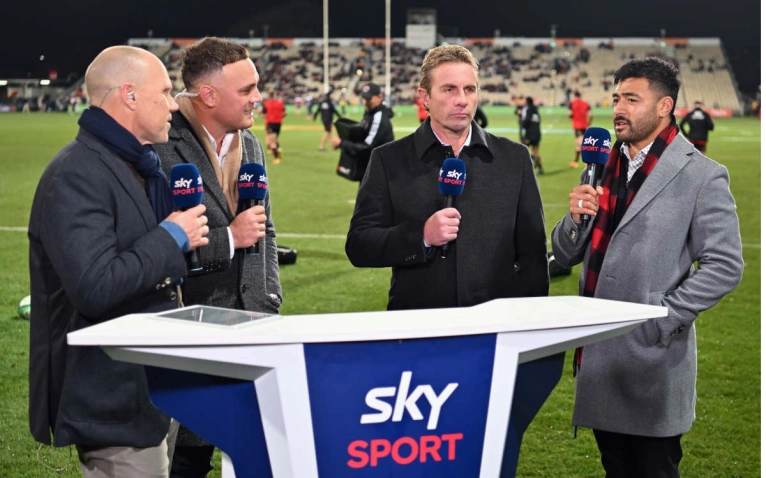
One can understand Marshall’s argument. Whenever the Southern Hemisphere teams tour Europe in November they come with the strongest squads available. “If you don’t do that, you’re doing the game an injustice because you’re not treating it with respect,” added Marshall. “We treat you with respect. And I feel that if the French were to use the excuse of a long season and their players are tired, well, you know, that’s just piss poor because we’re exactly the same when we have to go in November, but we front [up].”
There is a counter-argument, however, which France coach Fabien Galthie made in a long interview last week with Le Figaro newspaper. “World Rugby recommends a 2,000-minute season (the equivalent of 25 80-minute matches),” said Galthie.
It’s universally acknowledged that the Top 14 is the most physically demanding league in world rugby. It’s not just the size of the players, but also the length of the championship.
Already, with three months of the season still to run in Europe, several French internationals are nearing this number: flanker Francois Cros has started eighteen times for France and Toulouse, prop Uini Atonio has played 19 games for club and country, and winger Louis Bielle-Biarrey has made 20 starts for Bordeaux and France. “We have defined a policy for managing players in relation to the existing calendar,” explained Galthie. “The internationals have played around 20 matches since the start of the season. They can finish the season at 35 if they play everything… It would be selfish to simply say: ‘I want the best possible team to go and challenge the All Blacks’. What comes first? The health of the players. The show is great, but at what price?”
And that’s the winning argument. Players’ welfare must come before anything else. For too long France flogged their players to death; until a few years ago many of their internationals had to appear for their clubs during Six Nations rest weekends.
It’s also universally acknowledged that the Top 14 is the most physically demanding league in world rugby. It’s not just the size of the players, but also the length of the championship. This season it kicked off on September 7 and the final will take place on June 28, a week before France play the first Test in New Zealand.
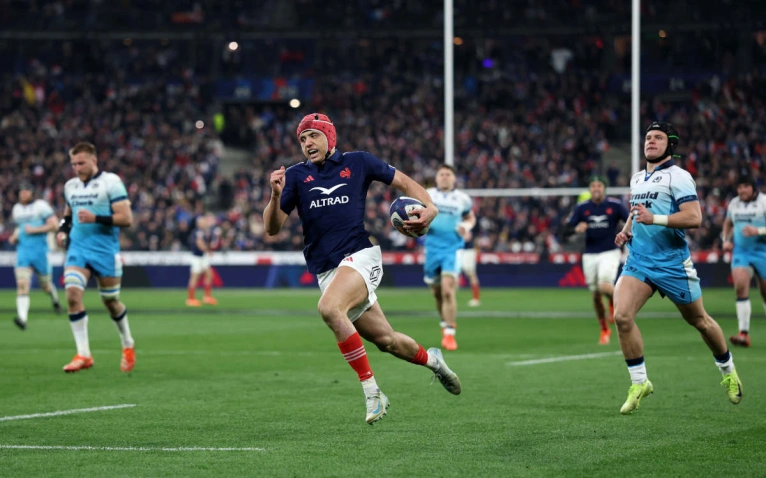
In contrast, the Super Rugby seasons lasts four months, allowing participants plenty of rest time, even for those players whose teams reach the final.
Take All Black Damian Mckenzie; after the 2023 World Cup final on October 28, he didn’t play again until round one of 2024 Super Rugby on February 23.
Mckenzie’s Chiefs made it to the final, which, combined with his All Black Tests, meant he started 25 matches all told in 2024. He also appeared off the bench in the final quarter of four Tests for New Zealand. He was substituted in five matches, so he more or less exactly hit the World Cup recommendation of a 2,000 minute season.
As Galthie put it: “I’m willing to leave with the best possible French team, but not at the cost of the players’ health. The All Blacks will have played around 10 matches with their provinces. And they’ll finish their season with 25 games.”
Toulouse fly-half Romain Ntamack said recently that a Test series in New Zealand is a ‘unique’ experience and a ‘dream’ of his.
Several of France’s Six Nations squad this year are likely to tour New Zealand; those players whose clubs won’t feature in the knockout stages of either the Champions Cup or the Top 14: two locks from Lyon in Mickaël Guillard and Romain Taofifenua Pau’s exciting young threequarters’ Theo Attissogbe and Emilien Gailleton, Stade Francais full-back Leo Barre and the Racing 92 pair of centre Gael Fickou and scrum-half Nolann Le Garrec.
But there may be more. Toulouse fly-half Romain Ntamack said recently that a Test series in New Zealand is a ‘unique’ experience and a ‘dream’ of his. His father, Emile, must have told him many times about his part in France’s 2-0 series win in New Zealand in 1994.
Asked subsequently about Ntamack’s comment, Galthie responded: “I told Romain, ‘we’ll see how many minutes you finish the season with, what condition your knee is in and, above all, what recovery period you’ll have afterwards’.”
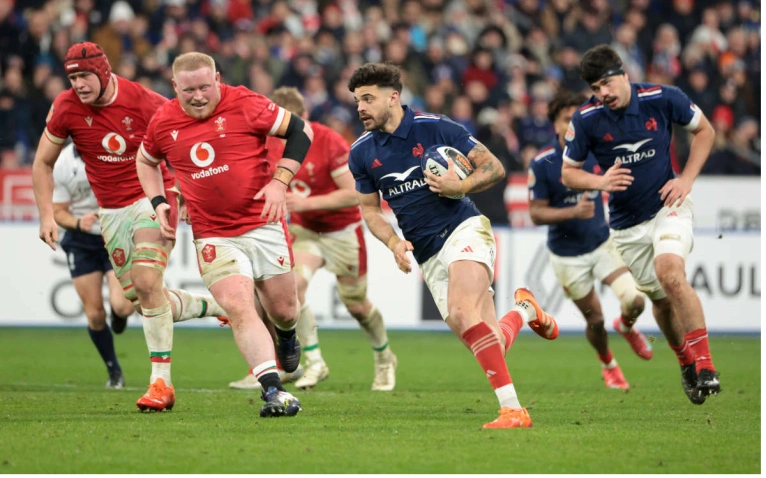
According to Midi Olympique, other experienced players have ‘expressed their desire’ to Galthie to tour New Zealand. As a former international, Galthie will understand their wish to challenge themselves in arguably the toughest rugby environment on earth. Nonetheless, he (and by extension the FFR) doesn’t want to antagonise the clubs by taking their prized assets on a tour that finishes on July 19, seven weeks before the start of the 2025-26 Top 14 season.
But Galthie will also be aware of the invaluable experience a three-Test series in New Zealand will bring to his squad. Of the twelve defeats France have suffered since Galthie became coach in 2019, eight were by two points or fewer. In other words, his French team rarely lose heavily but it’s crucial to start turning those narrow defeats into narrow victories before the 2027 RWC. “We’re working on this psychological balance of power, which is a factor in our progress,” said Galthie. “This will remain a guiding principle until 2027.”
Given the strength in depth in French rugby, Justin Marshall need not worry. The French will front up.
Surely, then, it would be beneficial to take the strongest squad possible to New Zealand while adhering as closely as possible to the 2,000 minutes guideline. What a learning experience, physically and psychologically. In contrast, what would be the point of taking a callow French squad to New Zealand to be ripped apart? It would be detrimental to France, and to the image of international rugby.
One suspects that Galthie is too proud a Frenchman to allow that to happen. He’ll take a strong squad to New Zealand, perhaps with three or four top names left at home to rest. Given the strength in depth in French rugby, Justin Marshall need not worry. The French will front up.
